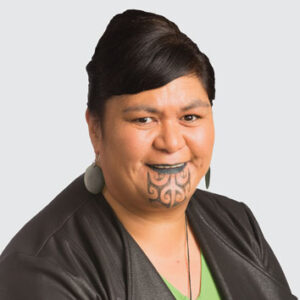 New Zealand will sell itself as a tourism destination for the wealthy when its borders reopen – and as for the peasants, the country’s new Tourism Minister pulled no punches when describing some notoriously unsavoury behaviour from the lower end of the market.
New Zealand will sell itself as a tourism destination for the wealthy when its borders reopen – and as for the peasants, the country’s new Tourism Minister pulled no punches when describing some notoriously unsavoury behaviour from the lower end of the market.
There’s no doubt change is underway in New Zealand – tourism bodies there are even replacing their country’s name with the Maori name ‘Aotearoa’ – and now Tourism Minister Stuart Nash, sworn in earlier this month, has come out with a broadside against backpackers, adding that he wants to ban tourists from hiring vans that are not fitted with toilets.
“Gone are the days, as far as I am concerned, where you hire a cheap van that is not self-contained,” he told RNZ’s Morning Report.
“We get all these vans driving around at the moment that are not self-contained, so if the driver or the passenger wants to go to the toilet – we all know examples of this – they pull over to the side of the road and they shit in our waterways.”

New Zealand’s new Tourism Minister, Stuart Nash
The NZ Government is pumping $700 million into cleaning up New Zealand’s waterways, after a survey found that about 94% of rivers in urban zones and 82% of rivers in pastoral areas were not swimmable, at least some of the year. Runoff from animals, fertilisers – and sometimes from humans – is responsible.
Nash said New Zealand was a high-end destination that did not need to market itself to backpackers and “freedom campers”. He echoed public resentment against those who interpret freedom camping as the freedom to defecate by the roadside.
Backpackers would come regardless, Nash said. They didn’t need to be encouraged.
Nash wants Tourism New Zealand to set its sights on high-net-worth visitors, people likely to blow “a hell of a lot of money” in the country.
So which visitors are desirable?
“The sort of person who comes in, flies business class or premium economy, hires a helicopter, goes out and does a tour around Franz Josef and eats at a high-end restaurant,” Nash clarified, reiterating “we do not need to spend money attracting backpackers here”.
“If you are willing to pay for a campervan, at least you have the ability to dispose of your excrement in a way that meets our sustainability goals and, quite frankly, our brand,” the minister told RNZ.
“All our marketing effort will be going into those high-net-worth individuals who are looking for a piece of paradise as they sit in lockdown in New York or London or Berlin or Paris and are looking at us with 30,000 people at a rugby game and going: I want a piece of that.”
Opposition National Party tourism spokesperson Todd McClay sounded a note of caution, saying New Zealand couldn’t afford to alienate visitors before its borders had even opened. Some operators, notably YHA New Zealand, have warned against alienating the youth market by aiming solely at richer, older travellers.
Potential tourists, rich or poor, will no doubt wait until they can enter New Zealand without needing to undergo two weeks mandatory quarantine on arrival.
MEANWHILE, the prominence of Maori – the people, the language and the culture – is growing steadily. New Zealand’s new Foreign Minister, Nanaia Mahuta, has the traditional Maori moko chin tattoo. The Maori name for New Zealand, Aotearoa, is being increasingly used, sometimes in combination, as Aotearoa New Zealand.

New Zealand Foreign Minister Nanaia Mahuta
Tourism New Zealand is still called exactly that, and the country’s tourism brand is still “100% Pure New Zealand” – first launched in 1993 and praised as one of the world’s strongest, longest-running and most admired destination brands. Even 15 years ago, the brand was valued at US$13.6 billion.
In comparison, the name Aotearoa is obscure to most of the world, yet its usage is growing. The only independent association that represents all sectors of New Zealand’s large and diverse tourism industry calls itself Tourism Industry Aotearoa – and now New Zealand’s business events sector has adopted a new name for its peak body: Business Events Industry Aotearoa (BEIA).

Business Events Industry Aotearoa (BEIA) chief executive Lisa Hopkins
Formerly Conventions and Incentives New Zealand (CINZ), Business Events Industry Aotearoa represents 460 members across New Zealand who work within the meetings, incentives, conferences and conventions, and exhibitions sector.
The new brand was announced this week at the association’s Annual General Meeting and will go live on 1 December to coincide with New Zealand’s only business events industry exhibition for 2020, BE Reconnected in Auckland.
BEIA chief executive, Lisa Hopkins says the new name gives its members the mandate to own the industry.
“We are using a globally-acknowledged term, and there is no ambiguity about who we represent and what we do,” she says.
“Our new brand maintains our connection to Aotearoa New Zealand, with the palette reflecting the colours of our ocean, alps and native birds.”
“Incorporating a myriad of organisations, international, large and small businesses, right across New Zealand’s tourism and business events landscape, this sector will continue to be a proactive and energetic partner with government in the vital work needed for New Zealand’s economic and social recovery.
“We are a significant contributor to tourism, yet we offer a nuanced societal, cultural, and environmental contribution which encompasses the corporate world, academia and government.
“It is the right time to define ourselves and remind government and our clients that this is an influential and cohesive industry. Our new brand signals this.”
Written by Peter Needham

















……if you are in the business of discriminating demographs for tourism then you’re not supposed to be in public service much less a tourism minister… in tourism, quality is alright but it doesn’t create jobs… quantity does… trust me… what is so wrong defecating in the wild… shits are biodegradable and good for the soil… I’m not suggesting to over tourist a place…..i’m merely saying your tourism program and plan is out of touch… and yes I’m a low life… and low lives matter….